A winding road through the pandemic for a motorbike taxi driver and community health expert
Jacob Likuyi is a man who wears many hats – or, perhaps more accurately, helmets.
By trade, Jacob is a 45-year-old boda boda, or motorbike taxi driver. A profession typically filled by younger men, Jacob doesn’t let his age hold him back from his livelihood. Jacob’s verve and friendly smile quickly give away his good nature, even before speaking with him. And with only his grandchildren around since the start of the pandemic, he has no choice but to keep up his pace in all aspects of his current life.
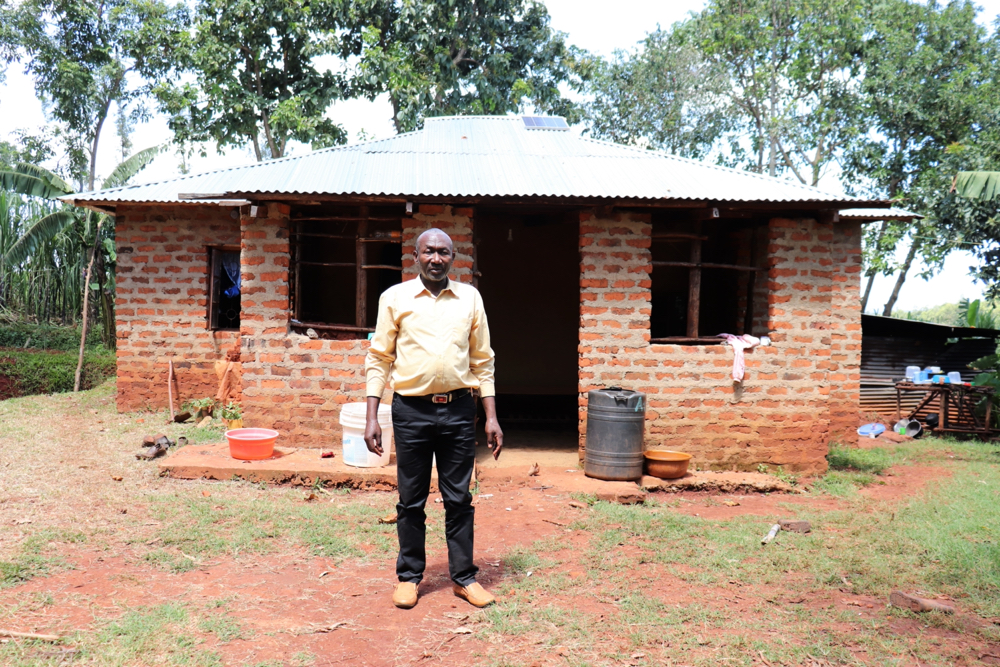
Jacob Likuyi outside his home
By passion, Jacob serves as his area’s Community Health Volunteer. In this position, Jacob liaises between his community and groups promoting improved health, hygiene, and sanitation practices – like our team – to bring important information to his village. Jacob and other Community Health Volunteers have been critical in helping rural villages fight and control the pandemic.
More people than ever before are now turning to Community Health Volunteers to share their expertise and guidance from the national Ministry of Health to help themselves, and their families stay safe from the virus.
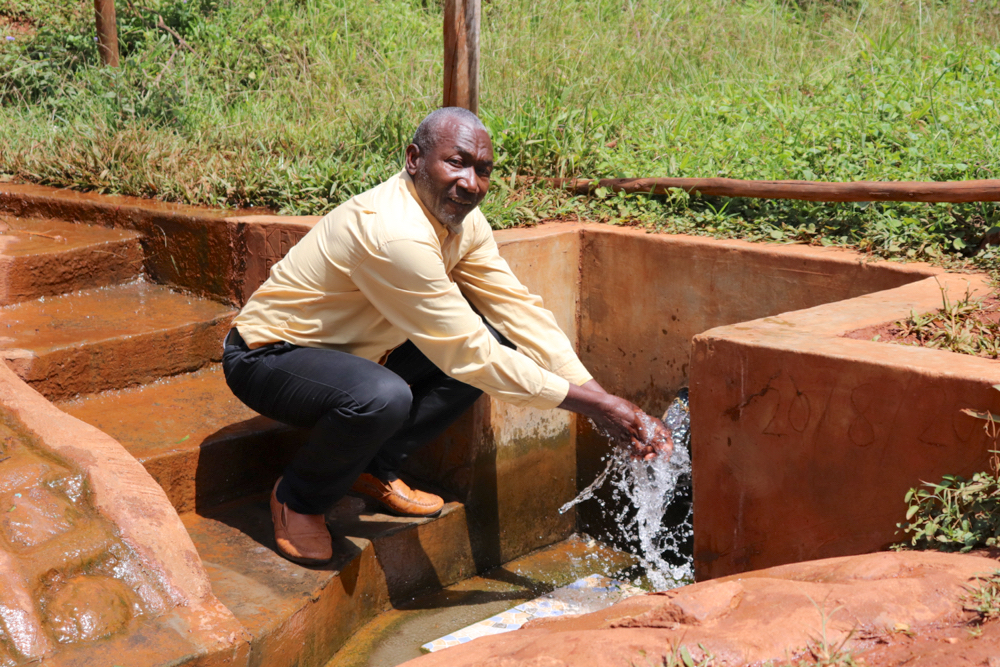
Jacob enjoying the water from Kenya Spring
During a recent visit to Mutao to monitor their water point, Kenya Spring, Jacob shared how the coronavirus is impacting his life and his community. Field Officer Jacky Chelagat met Jacob outside his home to conduct the interview. Both Jacky and Jacob observed physical distancing and other precautions throughout the visit to ensure their health and safety. The following is Jacob’s story, in his own words.
What is one thing that has changed in your community since the completion of the water project?
“Health problems have reduced to zero, and this has enabled our community to engage in different development activities which, in return, earns them a better living than before.”
How has having a clean water point helped you through the pandemic so far?
“The sufficient flow of clean water has greatly helped the community to practice frequent handwashing and improve hygiene and sanitation standards in their homes.”
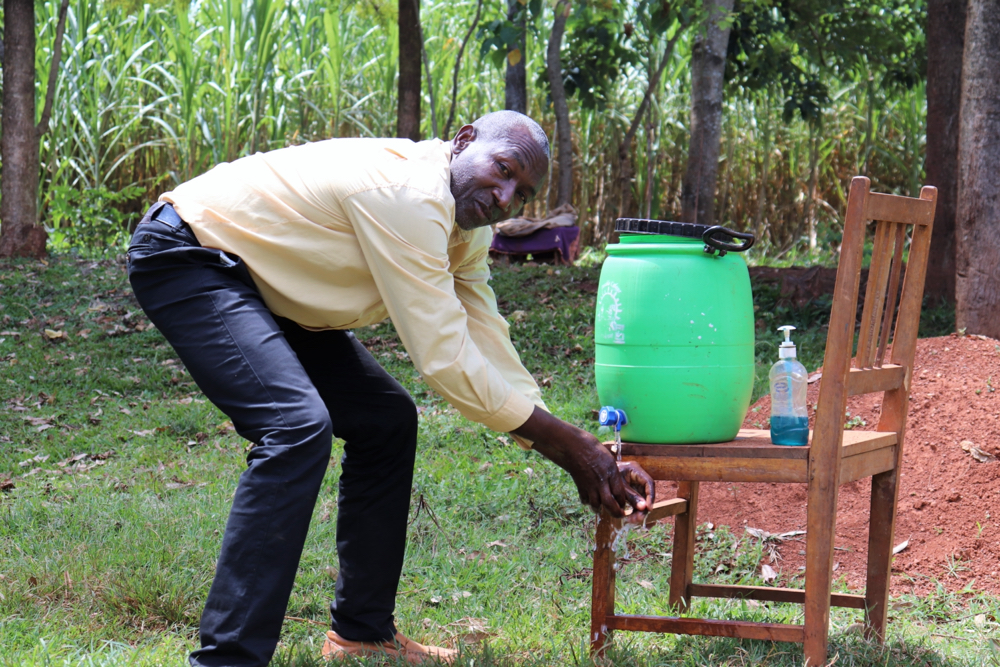
Washing his hands at home using soap and water from Kenya Spring
Since the outbreak of COVID-19 in Kenya, has fetching water changed for you because of restrictions, new rules, or your concerns about the virus?
“It has slightly changed; community members go in shifts to ensure that there is no congestion at the spring. Members have been advised to wear masks, observe the social distance, and to take minimum time fetching water. ”
How has COVID-19 impacted your family?
“Generally, it has affected the social ties we used to have as a family. Having my sons living and working in the city of Nairobi has limited them from visiting and interacting with their wives, children, and me. On the other hand, it’s so sad to see children staying at home instead of going to schools to be empowered. ”
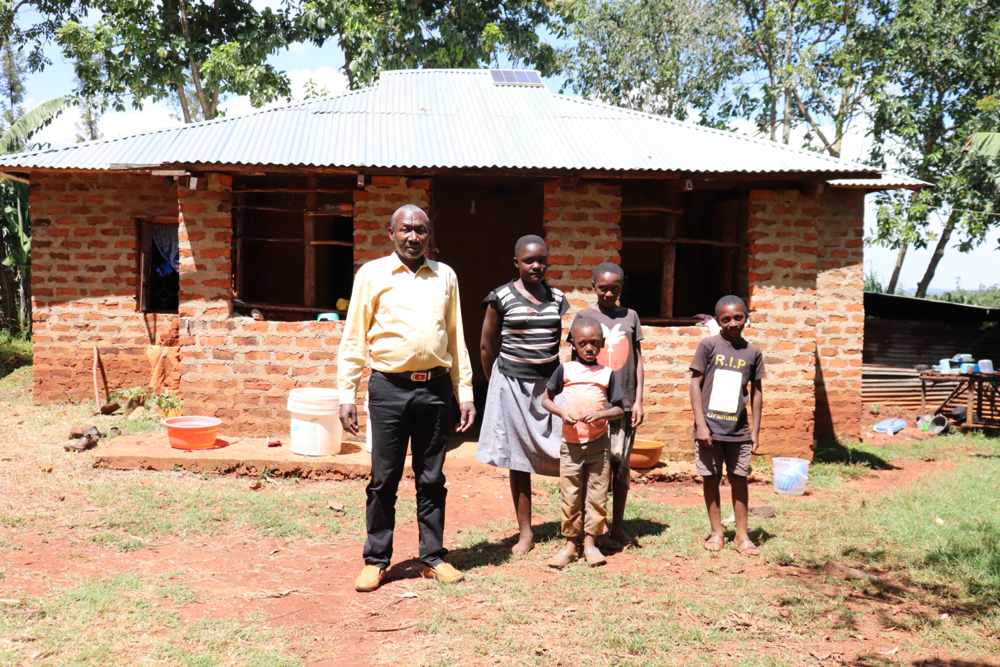
At home with his grandchildren
What other challenges are you experiencing due to the COVID-19 pandemic?
“Being a motorcycle rider, it has limited me on the number of clients I carry on my motorbike. Due to restrictions on much movement, there are no clients to ferry. This has resulted in less cash accrued. ”
What hygiene and sanitation steps have you and your community took to stop the spread of the virus?
“Wearing masks, social distancing, and washing hands.”
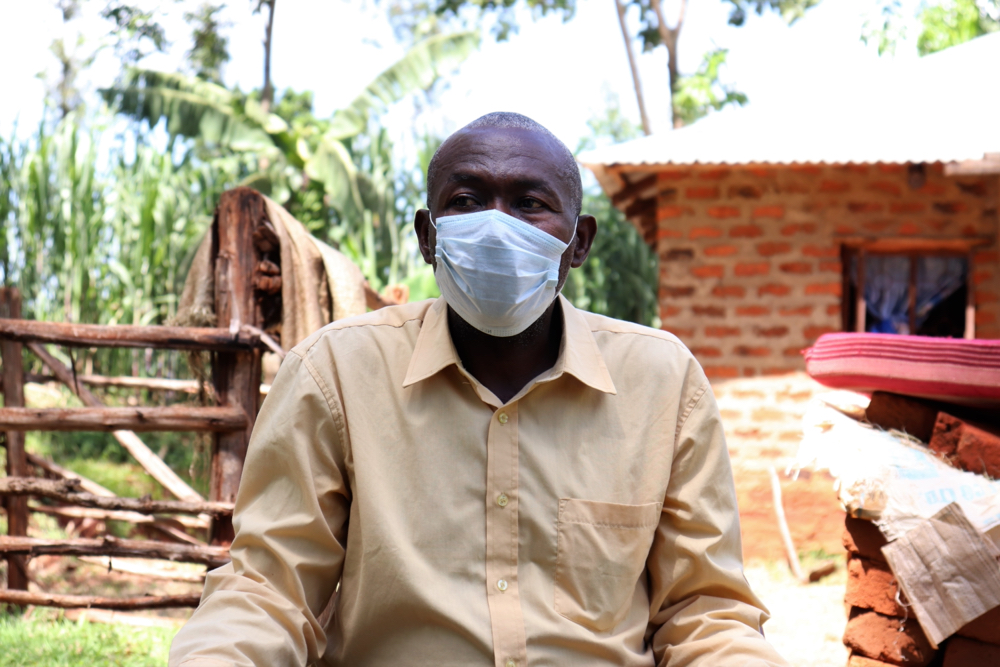
Jacob masked up
What restriction are you still looking forward to being lifted?
“Children going back to school and resuming their learning immediately will be a great achievement.”
Since we spoke with Jacob, the Kenyan government fully reopened all school levels to in-person learning. Students’ first day back was January 4, 2021.
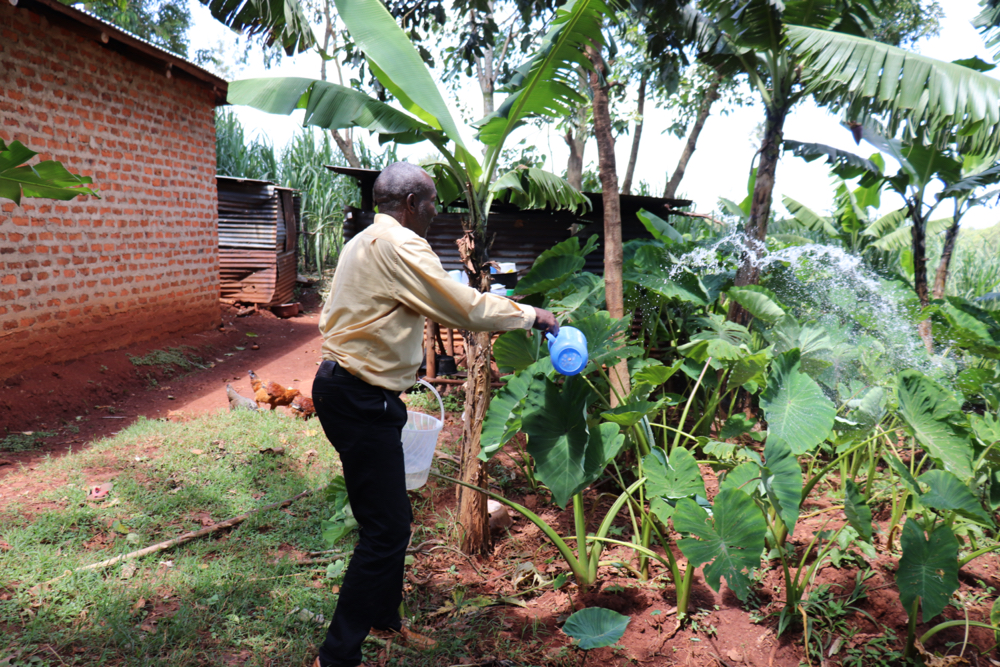
Watering his crops at home
What has been the most valuable part of the COVID-19 sensitization training you received from our team?
“The entire sensitization training was helpful. Community members followed the teachings to the letter. As we speak, not a single case of COVID-19 has been reported in our community.”
This post is part of a new series by The Water Project meant to highlight the perspectives and experiences of the people we serve and how the COVID-19 pandemic is impacting them. We invite you to read more of their stories here.
Home More Like ThisTweet